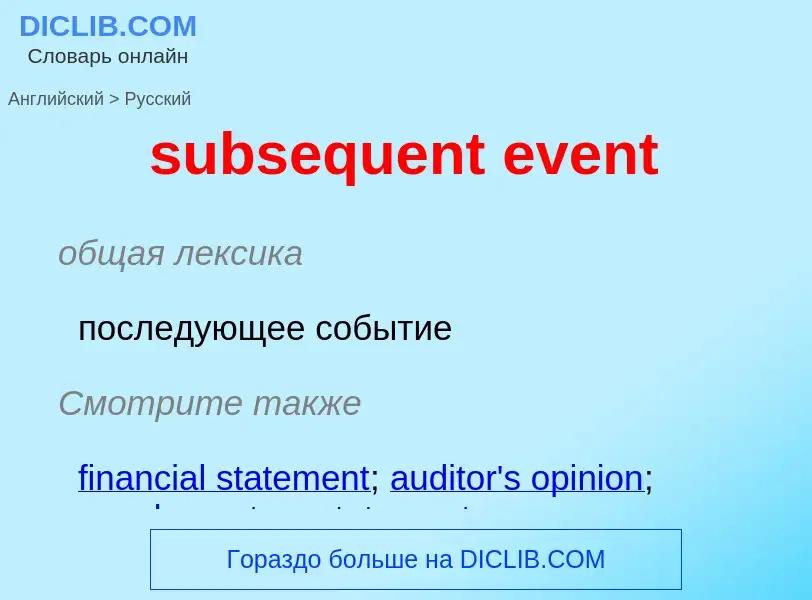Μετάφραση και ανάλυση λέξεων από την τεχνητή νοημοσύνη ChatGPT
Σε αυτήν τη σελίδα μπορείτε να λάβετε μια λεπτομερή ανάλυση μιας λέξης ή μιας φράσης, η οποία δημιουργήθηκε χρησιμοποιώντας το ChatGPT, την καλύτερη τεχνολογία τεχνητής νοημοσύνης μέχρι σήμερα:
- πώς χρησιμοποιείται η λέξη
- συχνότητα χρήσης
- χρησιμοποιείται πιο συχνά στον προφορικό ή γραπτό λόγο
- επιλογές μετάφρασης λέξεων
- παραδείγματα χρήσης (πολλές φράσεις με μετάφραση)
- ετυμολογία
subsequent event - translation to ρωσικά
общая лексика
последующее событие
Смотрите также
['kwiktaim]
военное дело
строевой
походный шаг
строевой, походный шаг
Ορισμός
Βικιπαίδεια
In probability theory, an event is a set of outcomes of an experiment (a subset of the sample space) to which a probability is assigned. A single outcome may be an element of many different events, and different events in an experiment are usually not equally likely, since they may include very different groups of outcomes. An event consisting of only a single outcome is called an elementary event or an atomic event; that is, it is a singleton set. An event is said to occur if contains the outcome of the experiment (or trial) (that is, if ). The probability (with respect to some probability measure) that an event occurs is the probability that contains the outcome of an experiment (that is, it is the probability that ). An event defines a complementary event, namely the complementary set (the event not occurring), and together these define a Bernoulli trial: did the event occur or not?
Typically, when the sample space is finite, any subset of the sample space is an event (that is, all elements of the power set of the sample space are defined as events). However, this approach does not work well in cases where the sample space is uncountably infinite. So, when defining a probability space it is possible, and often necessary, to exclude certain subsets of the sample space from being events (see Events in probability spaces, below).

![soccer ball]]. soccer ball]].](https://commons.wikimedia.org/wiki/Special:FilePath/Quick time event mockup.jpg?width=200)
![Shenmue]]''. Shenmue]]''.](https://commons.wikimedia.org/wiki/Special:FilePath/Yu Suzuki - Game Developers Conference 2011 - Day 3.jpg?width=200)
